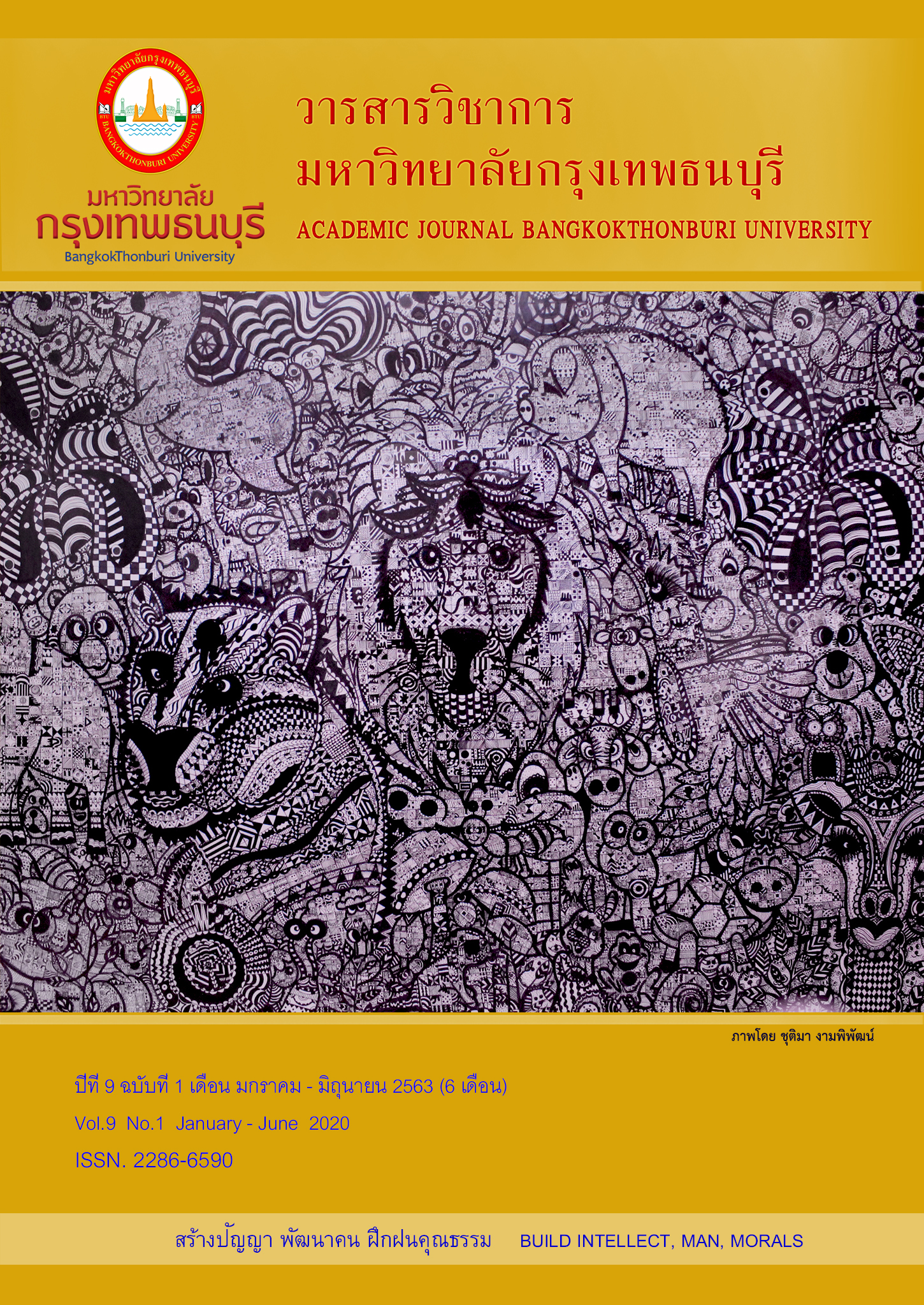The Strategies for Leadership Potentiality Empowerment in Administration of Wieng Nong Lom Wetland by Community: A Case Study of Ban Pa Sak Luang, Chan Chawa Tai Sub-district, Mae Chan District, Chiang Rai Province
Main Article Content
Abstract
The objectives of this study were to examine the circumstance, problems, and leadership potentiality of community leaders in administration of Wiang Nong Lom wetland by community, to develop the strategies for leadership potentiality empowerment in administration of Wiang Nong Lom wetland by community. The population were household leaders, municipality administrators, and community leaders. The research instruments were in-depth interview, questionnaire, and focus-group discussion. The data analysis employed frequency, percentage, mean, standard deviation, and content analysis.
The results revealed that:
1. Physical characteristics of the Wiang Nong Lom wetland are clay soil, unfavorable for cultivating crops, causing plants to grow slowly, and some plants cannot be grown at all. Water is shortage in dry season because villagers penetrate the area and deploy water drilling for use outside Wiang Nong Lom area. The hot weather is also rising. Wiang Nong Lom wetland management focuses on soil improvement and prevention from destruction. The water resources focus on stop disposing wastes and chemicals into the water. Plants and aquatic animals conservation focuses on breeding for further propagation.
2. The community leadership potentiality revealed general characteristics of community leaders at the high level. Basically, they showed verbal communication ability in delivering the talk to attract people in participating the wetland conservation activities, followed by gaining trust from people in the community, controlling emotions in various situations, possessing vision for practical implication, encouraging people in the community to learn together about the administration of Wiang Nong Lom wetland.
3. The strategies for leadership potentiality empowerment in administration of Wiang Nong Lom wetland conform to the vision that “Community Joint Development of Wiang Nong Lom Wetland for Sustainable Learning Source”. Six strategies for leadership potentiality empowerment were Strategy 1: Promoting leadership potentiality development in formulating community development plan for administration of Wiang Nong Lom wetland. Strategy 2: Promoting the integration of formal and non-formal operation under community development plan. Strategy 3: Extending and applying knowledge of local wisdom in the administration of Wiang Nong Lom wetland. Strategy 4: Co-constructing knowledge and understanding of leaders and people in implementing government policies into practice. Strategy 5: Promoting and building incentives for leaders in implementing community development plan for the administration of Wiang Nong Lom wetland. Strategy 6: Improving communication between leaders and people in the administration of Wiang Nong Lom wetland. And Appropriateness evaluation of the strategies for leadership potentiality empowerment in the administration of Wiang Nong Lom wetland by community indicated that all strategies were appropriate. The strategies holding the highest appropriateness were Strategy 6: Improving communication between leaders and people in the administration of Wiang Nong Lom wetland and Strategy 4: Co-constructing knowledge and understanding of leaders and people in implementing government policies.
Article Details
References
Khiewleee, J (2014). Leaders and community leaders for development. Retrieved 2 June 2014, from http://www.l3nr.org/posts/44887.
Puttagosa, K. (2011). A Guide to Learning Community Development. Complete version. Scientific research National Research Council of Thailand.
Chaipukdee, M & Canittawong, W. (2008). Wetland situation and management in Thailand. Bangkok: National Research Institute.
Makasiranon, W. (2005). Strategy Maps Mapping Strategy for Blanced Scorecard. Bangkok: Export Net Company Limited.
Srirut, S. (2016). Sustainable Community Tourism Management Planning for the ASEAN Economic Community: A Case Study of Wiang Nong Lom Wetland Area, Mae Chan District and Chiang Saen District Chiang Rai province. Journal of Human Sciences. 15(2). 132-164.
Chancha Subdistrict Municipality Office, Mae Chan District, Chiang Rai Province. (2014). Annual Report 2015. Chancha Subdistrict Municipality.
Yamane, Taro. (1973). Statistics : An Introductory Analysis. (2nd ed.). New York: Harper & Row.


